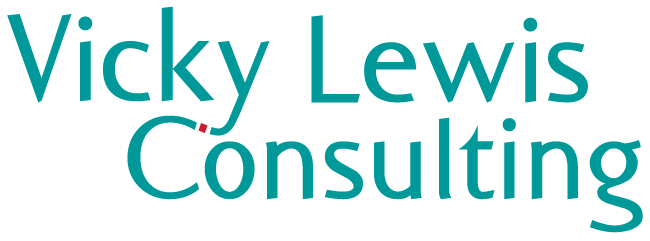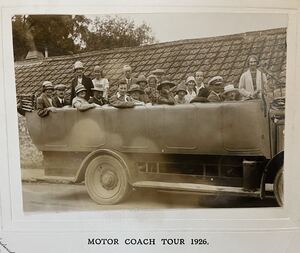International Strategy for Higher Education Institutions
International Strategy for Higher Education Institutions

Posted on by Vicky Lewis

I’m coming to the end of a four-week break from consultancy.
I decided earlier this year that I’d try to take April off work to deal with a specific personal project – and I told lots of people about my plan to reduce the chance of me backing out!
The project is sorting the contents of dozens of boxes of letters, travel journals, unpublished (and some published) writings, photos, slides, sketches, significant documents and mementos that I brought back from my mum’s house after she died in 2017. As an only child of another only child, belonging to a family with hoarding tendencies, this is a mountain of a task.
I had been telling myself for years that I would try to reduce my working week to four days and spend my Fridays on the sorting exercise. This didn't happen. Work always took precedence.
I realised I’d have to treat it like a work project and allocate a decent chunk of time to it. April seemed like a good month to pick. Clients often take time off over Easter and I had a lot of assignments finishing in March.
As the time approached, I also recognised that doing something completely different for a whole month would have some much-needed spin-off benefits.
When I became self-employed eleven years ago, I was determined to keep my evenings and weekends largely work-free: something I had singularly failed to do when employed within universities. For my first decade of consultancy, I pretty much stuck to this. Weekend working was very much the exception.
However, I noticed that my discipline was starting to lapse in late 2023 and early 2024. Work was creeping into weekends. Sometimes I’d skip the 7.45am walk with which I always try to start the day when I’m working from home. I was working longer hours but being less productive.
As well as allowing me to make inroads into the box-sorting, taking April off would help me to reset my work-life balance.
As a freelancer, it really went against the grain to tell prospective clients that I would be unavailable until May, given that I didn’t actually have any work lined up in April. But I made myself do it and I’m very glad I did.
The project itself proved fairly intensive and I underestimated how long it would take to bring some kind of order to documents dating from the 1870s through to the 2010s. I was hoping I’d be able to get rid of quite a lot, but this was harder than I thought as I found a treasure trove of family and social history.
There was an album of Victorian Christmas cards; a box of curious souvenirs collected by a great aunt who travelled to East Asia, Africa and North America in the early 1900s; mawkish poetry written during the first world war; photos from British Columbia where the aunt settled for a while; christening gifts and condolence letters from the 1920s and 1930s; weekly letters about day-to-day life in England throughout World War Two; travel journals from 1948 onwards, including the two years my mum spent working in Nigeria in the late 1950s in the run up to independence; correspondence between my parents, trying to plan their 1964 wedding via airmail letters which frequently crossed (she was visiting friends in [what was then] Rhodesia while he was trying to organise things in the UK); and that’s before you even get to the records of events I recall from my own childhood, all the postcards I sent home once I started travelling independently, or accounts of the madcap travel adventures my widowed mother embarked on after I left home.
So, after nearly four weeks, I’ve got rid of a few things, have a better sense of what’s there and have made a start on putting things in chronological order. But there are still several boxes I’ve barely opened. I’ve not attempted to go through photos, slides and sketchbooks, and I’m still trying to work out how to match up the separate bits of family tree that different relatives have drawn up over the decades.
And we still have lots of boxes in the spare room!
I’ve realised I want to do something to make all these memories accessible – if only to my own children (in the hope that, at some point in the future, they’ll be interested!). I’ve also recognised what a huge project this is and, while I can push on with the sorting (now that I’ve taken the ‘first bite of the elephant’), digging out the gems and capturing the highlights may have to wait until I retire!
My time out has also allowed me to step away from the work treadmill and rebuild my reserves of enthusiasm and resilience. As well as focusing on my sorting project this month, I scheduled various lunches, dinners and other catch-ups with people I hadn’t seen for a while. I even managed a mini-break to stay with old friends in Edinburgh, which was a real tonic.
We all need to step back and change our perspective sometimes. For me, this was a reminder that one of the benefits of self-employment is relative autonomy and I need to take more advantage of this, rather than being sucked into traditional working patterns.
I’m excited to get back to work, although I feel as if I’ve been on a very long journey and have forgotten everything I used to know!
I’d be interested to hear if anyone else finds imposter syndrome kicks in when they’ve taken time out. Even after eleven years of consultancy, I have moments when I doubt my ability to tackle a new project. I have to remind myself that I have heaps of experience to draw on and that I always love the challenge as soon as a project is underway!
And I’m particularly looking forward to my first week back as it includes two days at UUK’s International Higher Education Forum. This is one of my favourite conferences and it’s the first in-person IHEF since before the pandemic. The agenda looks great and the delegate list is packed with people I’d love to chat to, so I’m confident I’ll come back enthused, fully immersed in all things international education, and raring to go.
If you’re going to be at IHEF and fancy a chat, please get in touch (email vickylewisconsulting[at]gmail.com or message me on LinkedIn).
|
|